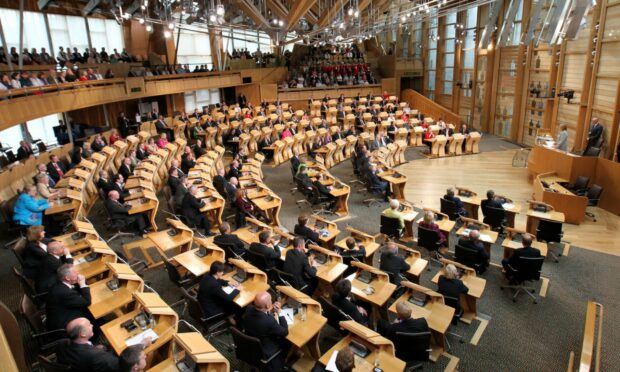Labour will push forward with plans for a constitutional overhaul even if Scots voters reject them at the ballot box, Gordon Brown has said.
The former prime minister was speaking ahead of a new paper set to be published on Monday by the party’s Commission on the Future of the UK.
The wide-ranging review of the current UK constitution has been framed as providing an alternative to both the status quo and Scottish independence.
Speaking ahead of its official launch, Mr Brown, who is chair of the commission, said the plan will be put to voters at the next general election as an opportunity to make the UK a better place.
But he also stated that any Labour government returned at the election would push on with the proposals even if Scots reject them and vote instead to return a majority of SNP MPs in Scotland.
Battle lines drawn for election
SNP leader Nicola Sturgeon has vowed to fight the election as a de-facto referendum, where every vote for her party would be considered a vote for independence.
Asked how important it is to have the endorsement of Scottish voters and whether a poor election performance could force a rethink of the commission’s proposals, Mr Brown insisted: “This is going ahead if there is a Labour government.”
The ex-PM said the recommendations set out in the report would create “a new sense that there’s a shared mission of United Kingdom”.
He added: “I think you will find that Labour, whatever happens, as long as it is in government, and no matter how many MPs it has in different areas of the country, will want to implement them.
“But the key thing of course is, if you want this change, if you want change to happen and as quickly as we can do it if we’re a Labour government, then there’s no point in voting SNP or Conservative.
“Instead of a one-issue election, we’re proposing social, economic, political and constitutional change.”
What does the report say?
The 115-page report sets out a total of 40 recommendations.
These include proposals to help address the “over-centralisation of the UK state and economic inequality within the nation”.
Scotland would be given an “enhanced role” in the UK through greater representation in a new assembly of regions and nations to replace the House of Lords, as well UK national bodies such as the Bank of England and Foreign office.
The Job Centre Network would be devolved and a Labour government would report on increasing borrowing powers for the Scottish Government.
Ministers at Holyrood would be able to enter agreements and international bodies related to devolved areas, such as Erasmus, Unesco and the Nordic Council.
Meanwhile, permanent constitutional protection of devolved powers would mean they could not be overridden by politicians at Westminster.
The proposals would underpin a new “British mission” that would include elements such as ending child and pensioner poverty, maintaining a universally available health service free at the point of use and driving equality initiatives.
However, there have been reports of tensions within the party over Mr Brown’s call for the House of Lords to be replaced with an elected second chamber.
Peers warned these plans may not be deliverable in the first term of a Labour government and said leader Sir Keir Starmer could “use up a lot of political capital at the expense of other domestic reforms if he goes too fast on this.”



Conversation